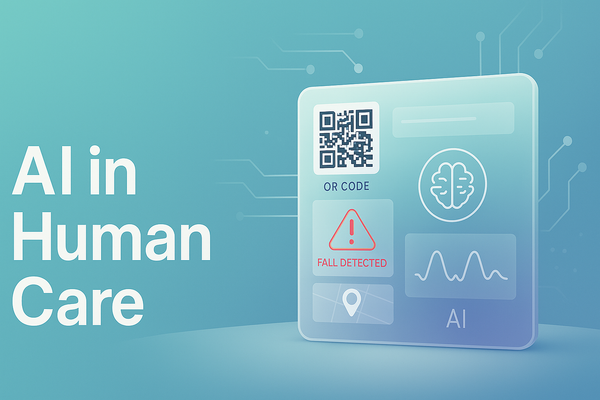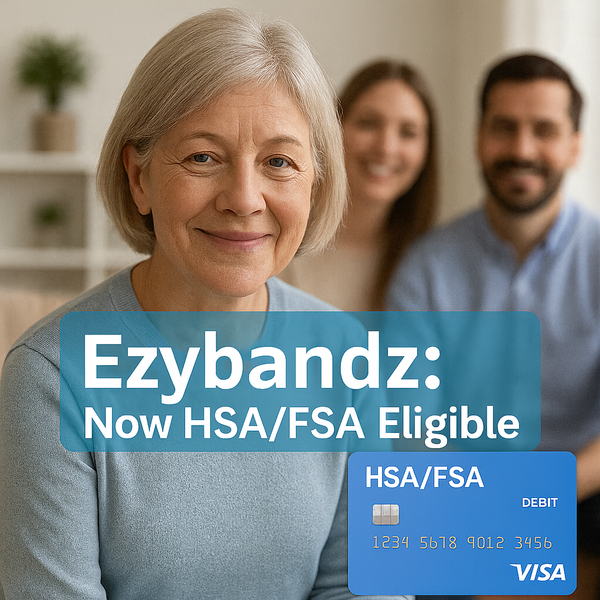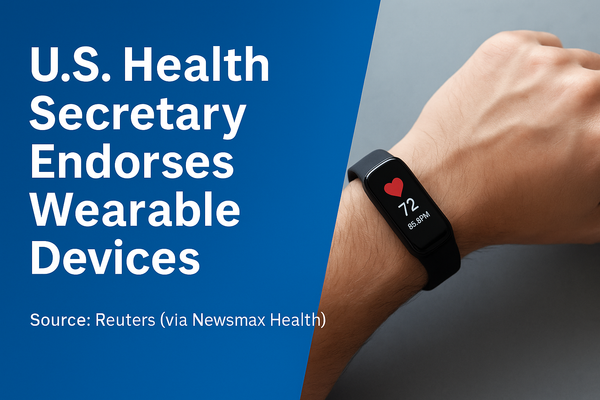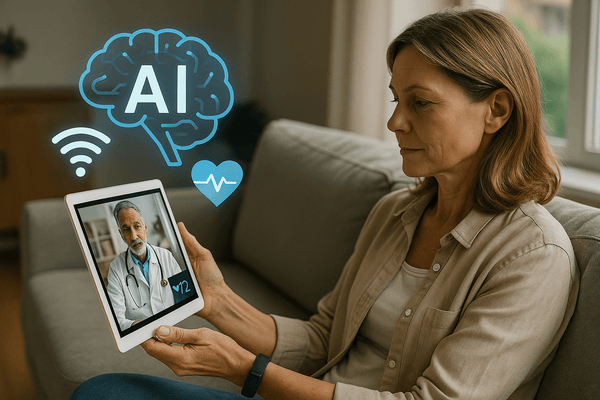Home is where seniors feel most comfortable, yet it’s also where many accidents like falls occur. In fact, more than one in four adults over 65 experiences a fall each year cdc.gov. Falls are the leading cause of injury in seniors, and getting help quickly after a fall is critical. Unfortunately, studies show that nearly 50% of older fallers cannot get up without assistance, and 20% lie on the floor for over an hour physio-pedia.comphysio-pedia.com. This “long lie” can lead to serious complications like dehydration, hypothermia, pressure sores, and even death in the months following physio-pedia.comphysio-pedia.com. The good news is that with proactive measures and technology like medical alert bracelets, you can keep your aging parent safe at home while empowering them to live independently.
1. Fall-Proof the Home: Start by minimizing fall hazards in the house. Simple modifications go a long way:
-
Remove tripping hazards: Clear clutter, secure loose rugs, and keep walkways well-lit. Install grab bars in bathrooms and handrails on stairs.
-
Improve lighting: Aging eyes need more light. Use night lights in hallways and bathrooms to prevent night-time falls.
-
Safe flooring: Ensure non-slip mats are in the shower and consider softer flooring to cushion any falls.
Such adjustments address the environmental causes of falls. Remember, fall prevention is key but one must also prepare for the possibility of a fall despite precautions.
2. Encourage Strength and Balance Exercises: Regular physical activity can bolster your parent’s stability. Simple chair exercises, gentle yoga, or tai chi improve muscle strength and balance, reducing fall risk. Many communities offer senior fitness classes focused on fall prevention. Keeping active not only improves physical health but also confidence. And with confidence, your parent may move more safely instead of shuffling anxiously (which can actually increase fall risk).
3. Open Communication and Emotional Support: Talk with your parent about safety concerns without alarmism. It’s important they don’t feel their independence is being taken away. Share your worries lovingly: for example, “I know you value living at home, and I want to make sure you’re safe to enjoy that.” Listen to their fears or reluctance. Often seniors resist safety devices or home changes out of pride or denial. Approach these conversations with empathy and emphasize that tools like a medical alert bracelet preserve independence – they allow seniors to live alone safely, rather than needing constant supervision. (One caregiving expert notes that framing a device as a source of freedom and peace of mind rather than a sign of frailty can help overcome embarrassment or resistance theseniorlist.com.)
4. Leverage Technology – Medical Alert Bracelets: One of the best safety nets for seniors living alone is a medical alert system worn on the wrist. A modern medical alert bracelet like the Ezybandz GuardianOne can automatically detect falls and summon help with the push of a button. This means if your parent slips in the shower or feels dizzy and needs assistance, help can be alerted instantly, even if they can’t reach a phone. Considering that 17% of seniors who fell in one study had to wait over an hour for help theseniorlist.com, having a device that notifies family or emergency services right away is potentially life-saving. Every minute counts prompt help can prevent minor injuries from turning into major ones.
How Medical Alert Bracelets Keep Seniors Safe: These devices use sensors and wireless connectivity to detect emergencies and call for aid. The Ezybandz bracelet, for instance, offers automatic fall detection, real-time GPS location tracking, and an SOS button. If a fall is detected, the bracelet can immediately send an alert to designated caregivers or a monitoring center, providing the user’s location and even critical medical information. This rapid response can drastically reduce “long lie” times on the floor. (Long lies of over an hour are strongly linked to higher rates of hospitalization and transition to long-term care medstrom.com.) By shortening the time to rescue, a medical alert bracelet can lessen the medical consequences of a fall physio-pedia.com. It also offers peace of mind both for seniors and their adult children. As one research review put it, many older adults feel safer and more confident to stay active at home when they use a medical alert device healthline.comhealthline.com. Knowing that “help is just a button-press away” relieves the fear that often keeps seniors from doing the things they love.
Real-Life Scenario: Imagine your 75-year-old mother gets up at night for a glass of water and loses her balance. With a medical alert bracelet on her wrist, an accelerometer sensor detects the sudden fall. The device automatically pings an alert to you and other emergency contacts with her GPS location. Your mother can also press the bracelet’s SOS button to call for help. Because of this, you or responders can arrive within minutes, helping her up and getting medical care if needed. Without the device, she might have been stranded on the floor until morning – a frightening and dangerous situation. The bracelet quite literally empowers her to live alone safely, and it gives you peace of mind as a caregiver.
5. Medication Management: Many seniors take multiple medications, some of which can cause dizziness or low blood pressure. Help your parent by organizing their pills (consider a pill organizer or automatic dispenser) and reviewing medications with a doctor or pharmacist for side effects that increase fall risk. Proper timing of meds and avoiding alcohol that could interact poorly also keep them steadier on their feet.
6. Regular Check-ins: Even with all precautions, nothing replaces human connection. Schedule regular phone or video call check-ins with your parent, or enlist neighbors and friends to drop by periodically. Not only will this reduce their feeling of isolation, it ensures someone will notice relatively soon if something’s amiss. If you live nearby, create a routine to visit on certain days or have meals together. Social support is a huge part of safety and wellbeing for seniors.
7. Emergency Plans: Develop a simple emergency plan with your parent. Post important numbers by the phone and discuss what to do in various scenarios (for example, if they feel chest pain, or if there’s a fire). If they have a medical alert bracelet, ensure they wear it at all times (even at night and in the shower devices like Ezybandz are waterproof and designed for 24/7 wear). Practice how to press the button if they need help, and reassure them that it’s okay to use it even if they’re not sure it’s an “emergency.” It’s better to call for help and not need it than to hesitate. Some seniors worry about bothering others – try to eliminate that hesitation through encouragement and explaining that you want them to use it whenever they feel unsafe.
Conclusion: Keeping an aging parent safe at home is absolutely possible with some planning, home adjustments, and smart use of technology. By reducing fall hazards, staying active, and equipping your parent with a medical alert bracelet, you give them the best of both worlds: safety and independence. They can continue living in the home they love, and you gain peace of mind knowing help is always within reach if needed. As the saying goes, “Hope for the best but prepare for the worst.” Fall-proof the home and prepare for emergencies now, so that both you and your parent can enjoy the comfort of their home with far less worry. Empower your loved ones to live independently and safely – they deserve dignity and you deserve peace of mind. ❤
Research References: More than one in four seniors 65+ falls each year cdc.gov. Nearly half of older fallers cannot get up without help; long lies (>1 hour) greatly increase morbidity and mortality physio-pedia.comphysio-pedia.com. Only 1 in 10 older Americans uses a medical alert system, despite 1 in 3 having serious falls – many cite cost or pride as barriers theseniorlist.comtheseniorlist.com. Quick response is critical: 17% of seniors who fell had to wait over an hour for help theseniorlist.com. Long lies lead to complications like dehydration, pressure sores, muscle damage, and fear of falling physio-pedia.com. Wearing a personal emergency alarm significantly reduces long lie times and can save lives physio-pedia.com. Studies show medical alert devices make seniors feel safer and more confident living at home healthline.comhealthline.com – contributing to better quality of life even if health outcomes after an emergency are similar. By embracing tools like Ezybandz and proactive safety measures, families can support aging loved ones in living safely at home for longer.












